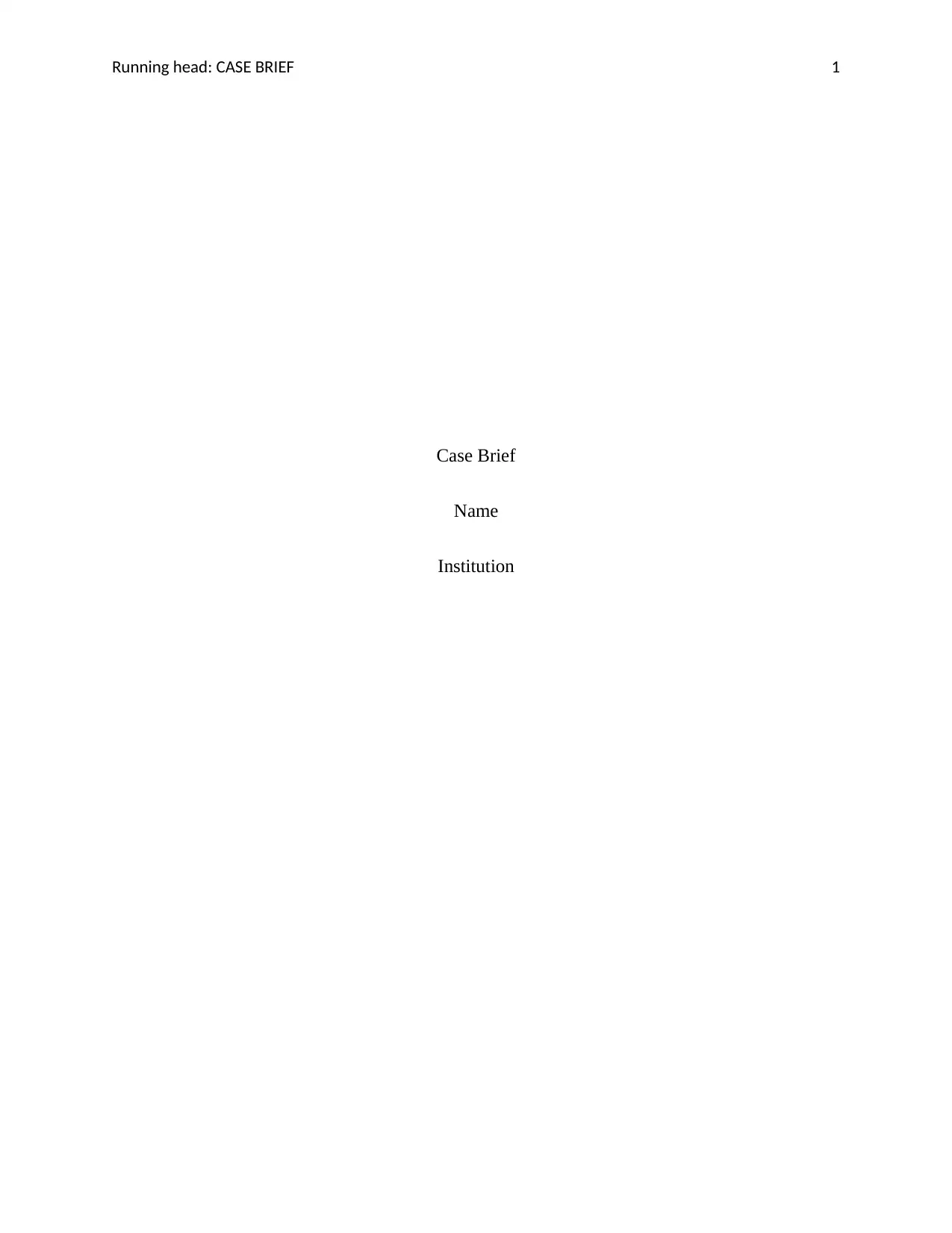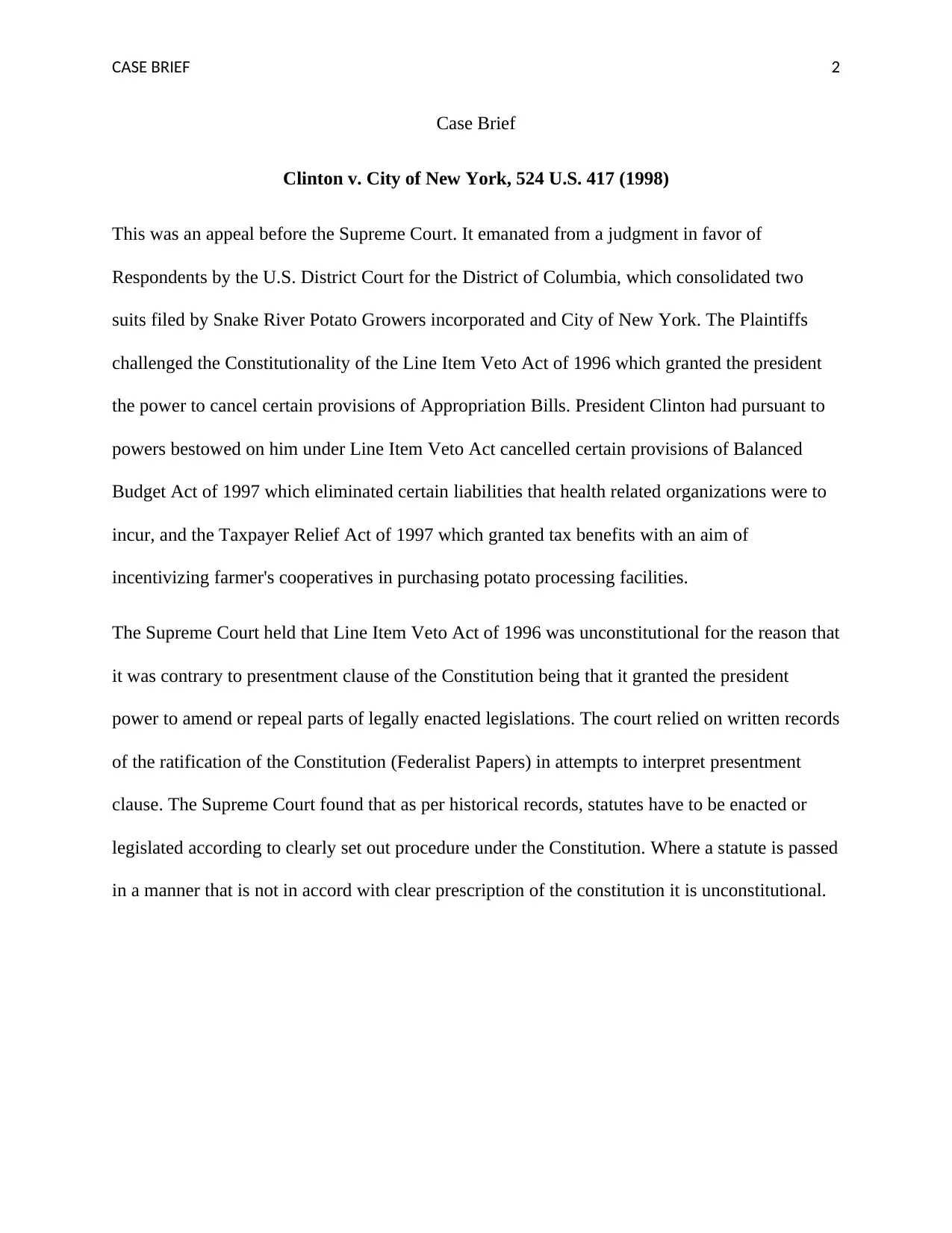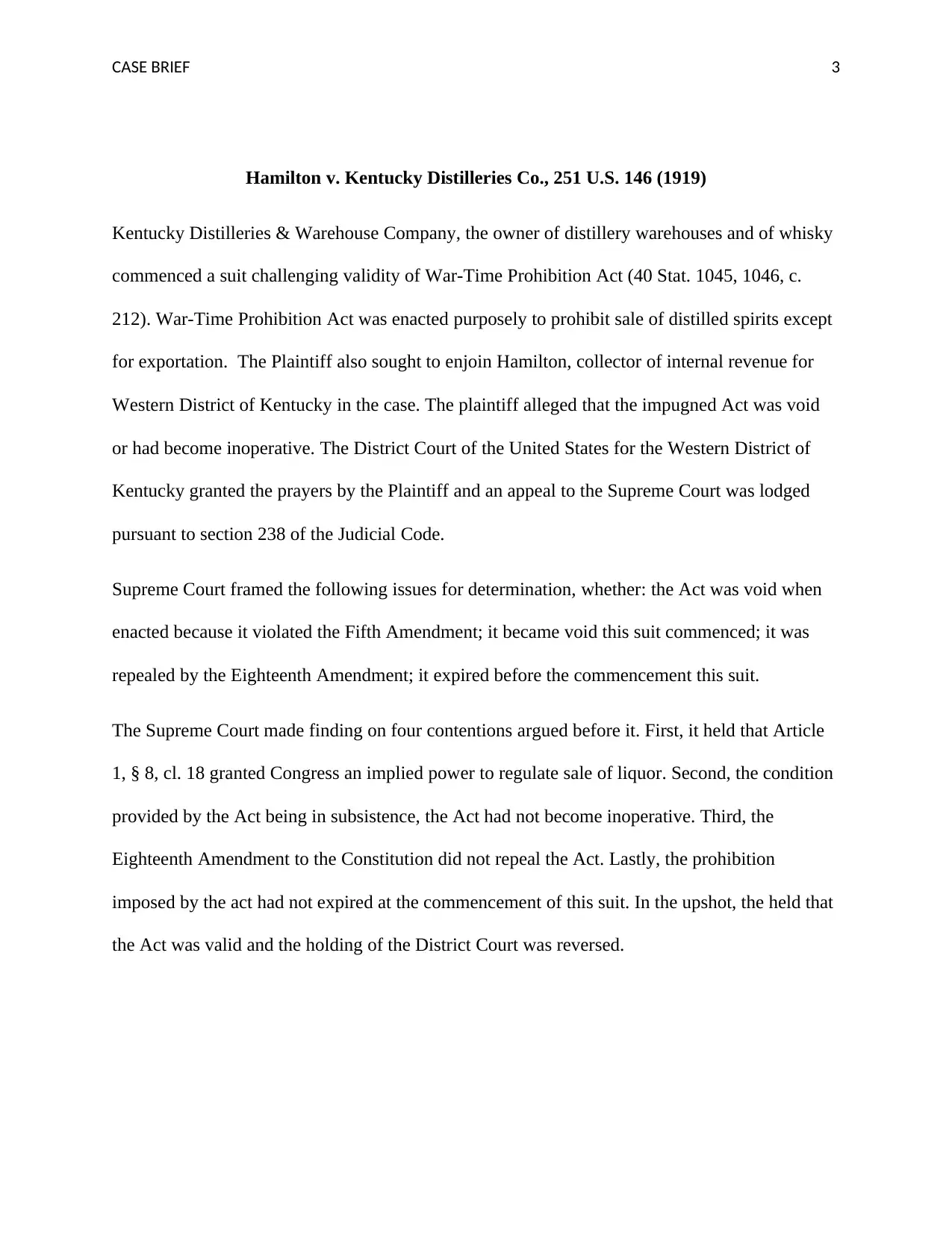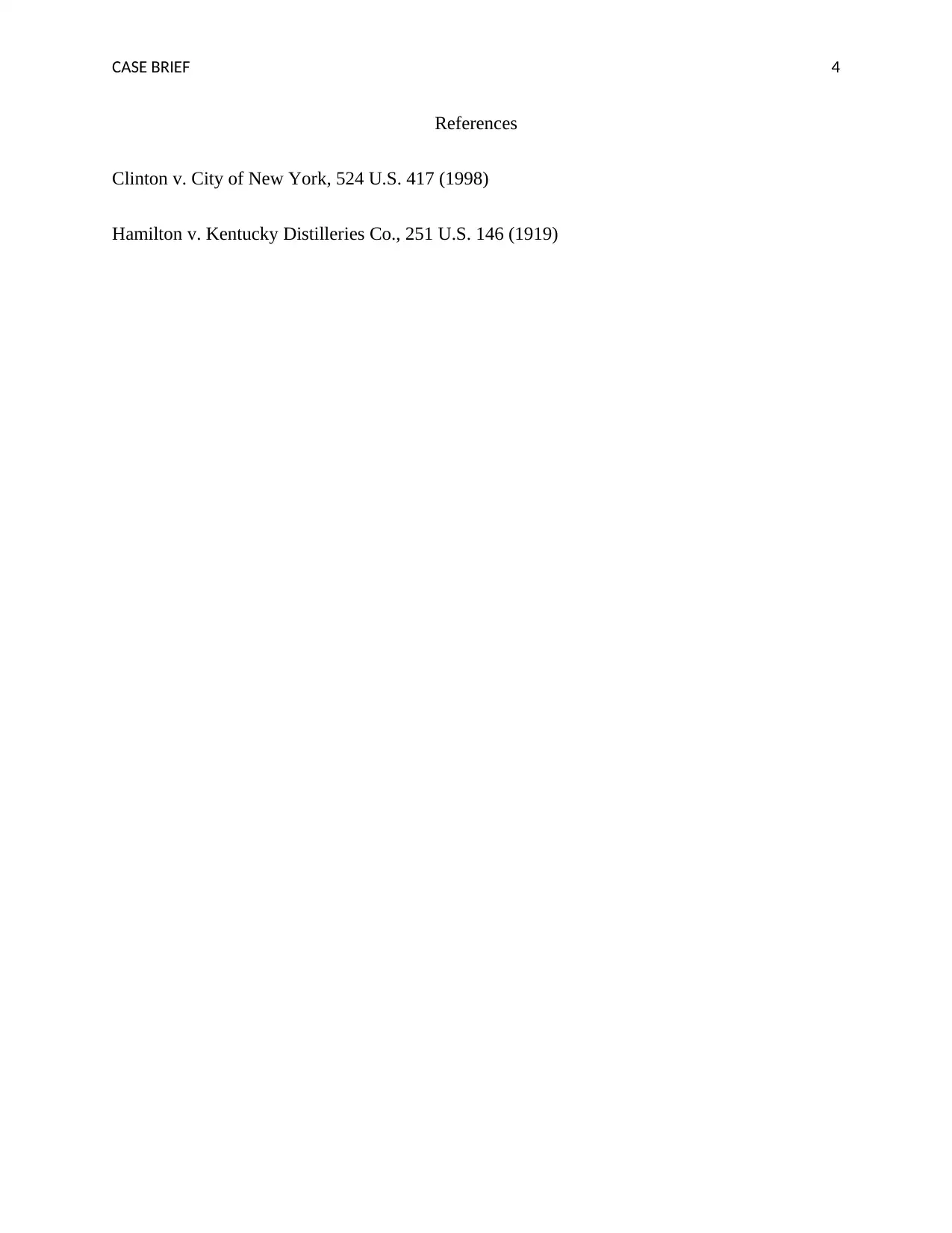Case Brief: Constitutional Law Analysis of Two Supreme Court Cases
VerifiedAdded on 2022/09/12
|4
|594
|20
Case Study
AI Summary
This assignment presents case briefs for two landmark Supreme Court cases: Clinton v. City of New York (1998) and Hamilton v. Kentucky Distilleries Co. (1919). The Clinton case challenges the constitutionality of the Line Item Veto Act, focusing on the presentment clause and the separation of powers. The Supreme Court ruled the Act unconstitutional, arguing it allowed the president to amend legislation. The Hamilton case concerns the War-Time Prohibition Act and its validity, addressing issues of implied powers, the Eighteenth Amendment, and the Act's expiration. The Court upheld the Act's validity, reversing the lower court's decision. The briefs summarize the facts, issues, arguments, and holdings of each case, offering a comprehensive understanding of their legal significance and constitutional principles. This assignment fulfills the requirement to brief two cases cited in Week 1 of a Constitutional Law course, focusing on the core subject matter presented in the provided materials.
1 out of 4





![[object Object]](/_next/static/media/star-bottom.7253800d.svg)